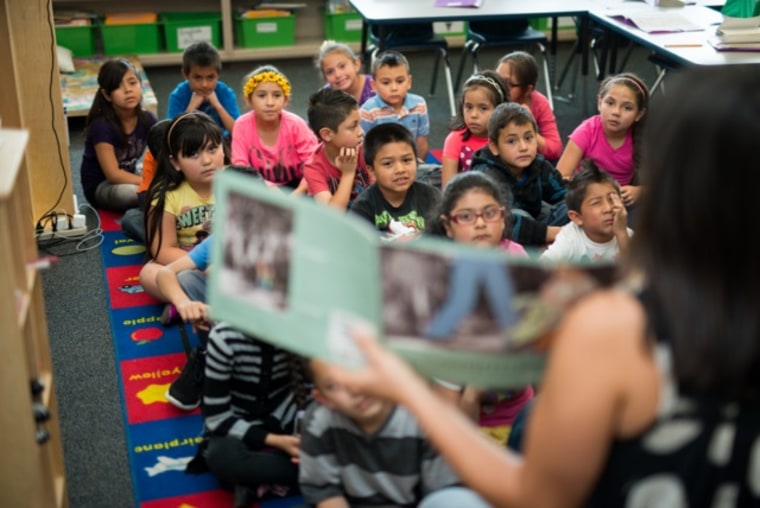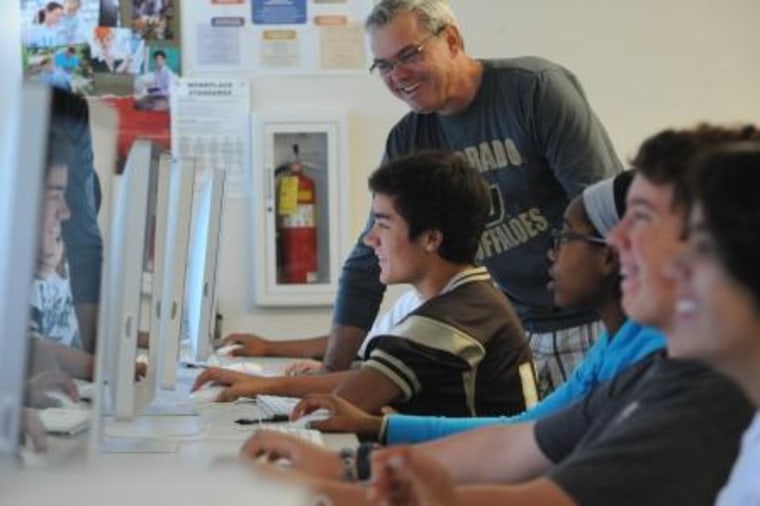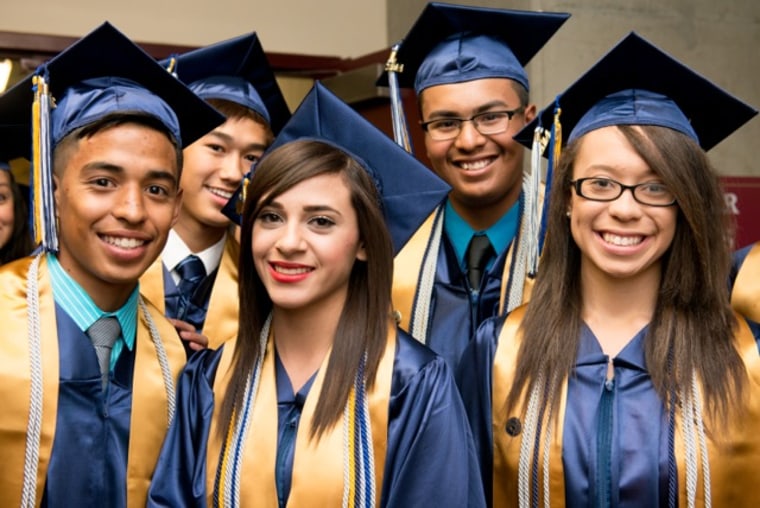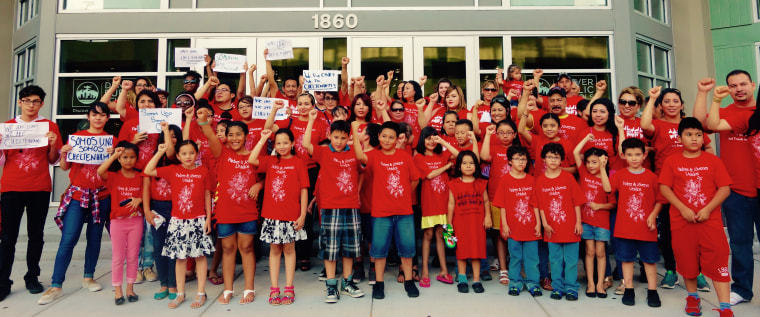An angry teenager feels disrespected by a classmate and initiates a physical fight with another student. The resulting altercation disrupts a classroom lesson.
Should these students be expelled? Or should they talk with one another, their fellow students, and a counselor about the consequences of their actions and how to make amends?
Increasingly, school districts around the country are choosing the latter approach. Now a coalition of community organizations, educators, academics, and social justice leaders has released a new report to encourage such practices in schools. The groups, including the Advancement Project, Denver Classroom Teachers Association, Denver Public Schools, National Education Association, and Padres & Jóvenes Unidos, collaborated as The Denver School-Based Restorative Practices Partnership to help promote restorative practices in Denver and beyond.

“Restorative practices” are alternatives to traditional school discipline procedures like expulsions or suspensions. Such measures have been shown to be used more against Latino and African-American students than white students. Civil rights data also show that more than half of students in school-related arrests or those referred to law enforcement were Latino or African-American.
RELATED: L.A. School Discipline Reforms Praised By Latino Educators, Experts
Proponents of restorative practices instead recommend peer mediation, counseling and after-school detention as a means of getting to the root causes of student behavior. The goal is to support students and help them integrate into the school community rather than to kick them out and have them return as troubled as before.
Yolanda Anyon, Assistant Professor at the University of Denver, Graduate School of Social Work, who authored the report, studied three Denver schools with student bodies that are predominantly minority and low-income. As these schools have implemented restorative practices, suspension rates have dropped – while indicators of achievement have risen.
Anyon told NBC News that people often do not understand what restorative practices are all about. “The unfamiliarity can make it a harder sell, which was part of the motivation for establishing the partnership. These three schools serve as demonstration site, so people can see what it looks like,” she said. “People may think it is soft, they hear about it and assume it is a ‘warm and fuzzy’ approach. But when you see it in practice, it is actually holding kids more accountable.” Instead of simply missing school, for example, under restorative practices students must come up with ideas to heal the harm they caused in their school communities.
Anyon’s report has four recommendations for successfully taking restorative practices school-wide: a strong commitment to restorative practices by the principal, staff buy-in to this resolution approach, continuous professional development opportunities, and allocation of school funds for a full-time restorative practices coordinator on-site.

Anyon noted that restorative practices do not necessarily cost a lot of money. “I think it is expensive in terms of belief. You have to get people on board in thinking of new ways of discipline,” she said. “That takes time, but it does not cost a lot of money.”
In a press call, John Albright, Deputy Chief of Staff for the Denver Public Schools, noted that the District began to change its discipline policies around 2005. Since then, the District has gone from over 12,000 out-of-school suspensions to about 5,000 annually (a 64 percent drop). Expulsions are down to 55 annually. During this same time, the Denver Public Schools District enrollment has grown to from roughly 72,000 to 90,000 students – making it the fastest-growing urban school district in the country.
Ricardo Martinez, Co-Executive Director of Padres & Jóvenes Unidos, told NBC News that restorative practices are also a better long-term solution to school discipline problems. “It asks students to take responsibility for their actions, and deal with the person they caused harm to; it really is the best way to turn a moment of misbehavior into something that they can learn from,” he said. “Students learn better social skills to deal with difficult situations.”
RELATED: Latinos Speak Out About Lack of Diversity In NYC Arts, Cultural Groups
“If schools just kick people out,” Martinez continued, “eventually that can lead to a path to jail. So we want to move away from the idea that we need to punish kids in order to make them learn.” He believes that restorative practices can help students turn their school years into more than just an academic experience, because they can also learn about managing anger, conflict, and problems.

According to Martinez, both teachers and students can benefit from restorative practices. He cited an instance where a teacher had spoken harshly to a student out of frustration. The teacher and student went through a restorative practices program together – and the teacher later apologized.
Restorative practices have been catching on with school districts around the country. In addition to Denver, schools in New York, Los Angeles, and Broward County, Florida, have embraced restorative practices instead of relying on suspensions. Last fall, Seattle Public Schools eliminated suspensions in their elementary schools after board members raised concerns about the school-to-prison pipeline.
Nationally, both the Department of Education and the Department of Justice have encouraged school districts to rethink their approaches to student discipline – while acknowledging the racial disparities in existing practices.

“In past we had a blind trust in school police officers,” said Yolanda Anyon, citing the outrage last year after a South Carolina school resource officer was caught on video throwing an African-American teenager to the ground. “Now, with all this attention to allegations of police brutality and the problematic relationship between young people of color and government authorities, it seems there is more willingness to look at these school discipline issues and address them.”
“I think there is a lot of energy in country around the issues of disparities in discipline, and the school-to-prison pipeline,” she said. I feel excited and optimistic about the possibility and potential for restorative practices to spread even further.”
